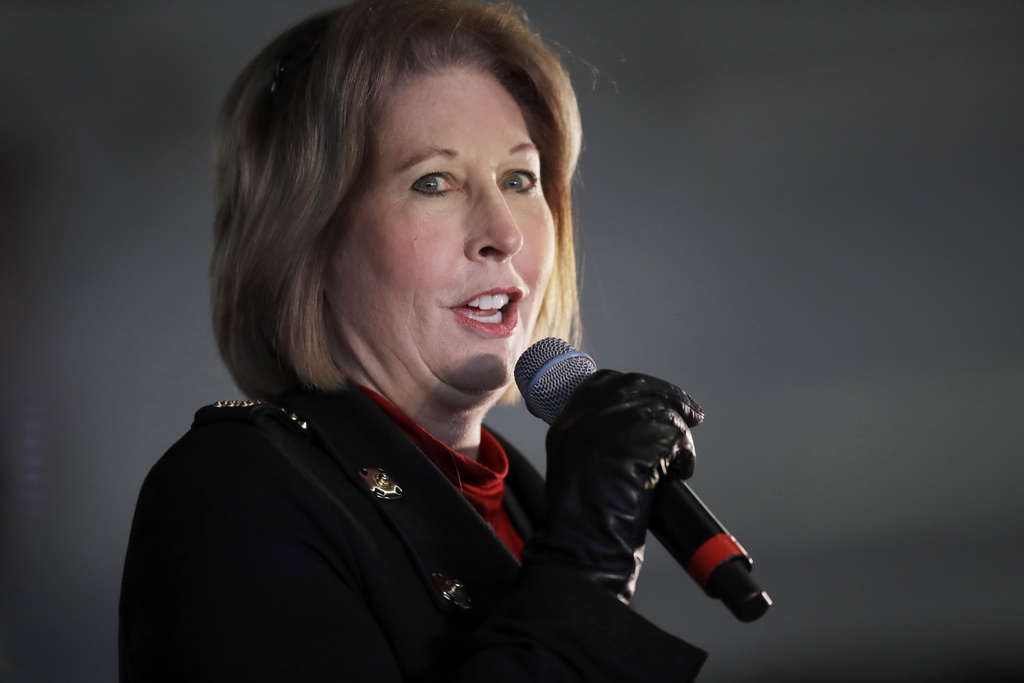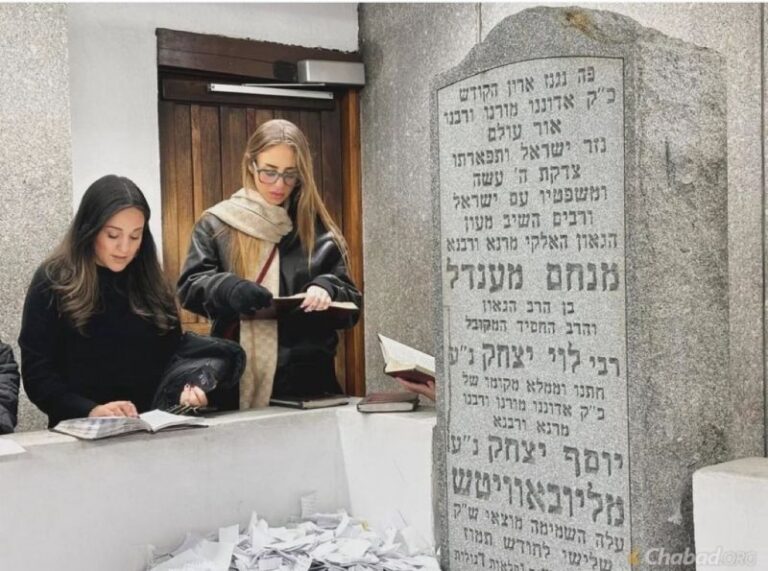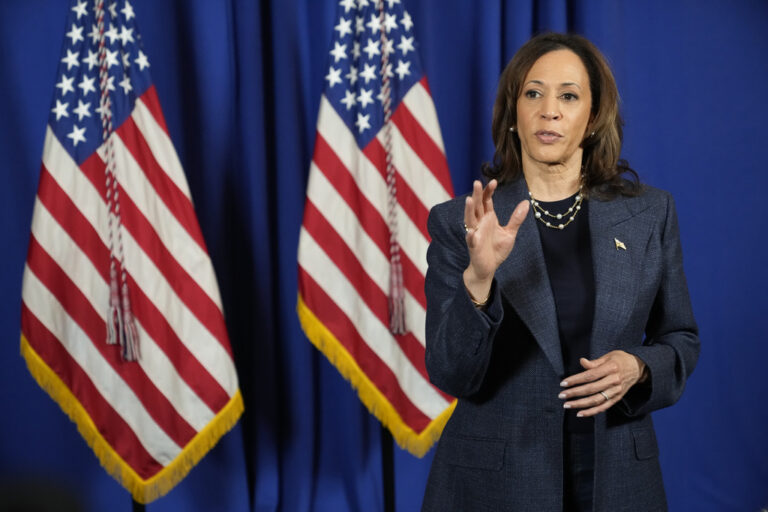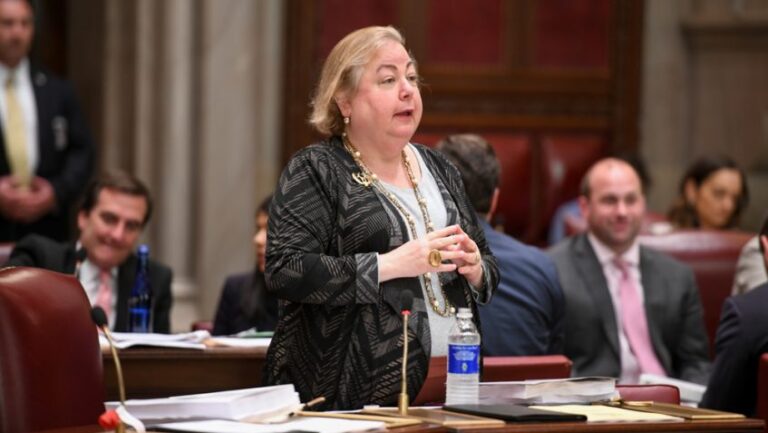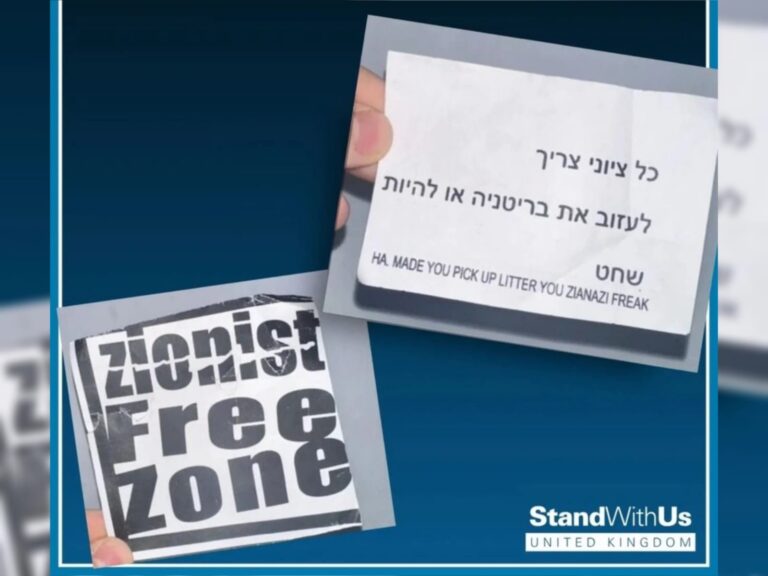The apology letters that Donald Trump-allied lawyers Sidney Powell and Kenneth Chesebro were required to write as a condition of their plea deals in the Georgia election interference case are just one sentence long.
The letters, obtained Thursday by The Atlanta Journal-Constitution through an open records request, were hand-written and terse. Neither letter acknowledges the legitimacy of Democrat Joe Biden’s win in Georgia’s 2020 election nor denounces the baseless conspiracy theories they pushed to claim Trump was cheated out of victory through fraud.
“I apologize for my actions in connection with the events in Coffee County,” Powell wrote in a letter dated Oct. 19, the same day she pleaded guilty to six misdemeanors accusing her of conspiring to intentionally interfere with the performance of election duties.
“I apologize to the citizens of the state of Georgia and of Fulton County for my involvement in Count 15 of the indictment,” Chesebro wrote in a letter dated Oct. 20, when he appeared in court to plead guilty to one felony charge of conspiracy to commit filing false documents.
A spokesperson for Fulton County District Attorney Fani Willis, who brought the election interference case, did not immediately respond Thursday to a request for comment on the contents of the letters.
Powell and Chesebro were among four defendants to plead guilty in the case after reaching agreements with prosecutors. They were indicted alongside Trump and others in August and charged with participating in a wide-ranging scheme to illegally keep the Republican in power. The remaining 15 defendants — including Trump, lawyer Rudy Giuliani and former White House chief of staff Mark Meadows — have all pleaded not guilty.
Each of the four who reached a deal with prosecutors received a sentence that included probation but no jail time. They were also allowed to plead guilty under Georgia’s first offender law, meaning that if they complete their probation without violating the terms or committing another crime, their records will be wiped clean.
The letters written by the other two defendants to plead guilty — Trump lawyer Jenna Ellis and bail bondsman Scott Hall — were longer and more specific. Ellis read her letter in open court on Oct. 24, tearfully telling the judge that she looked back on her involvement in challenging the election results with “deep remorse.”
“What I did not do but should have done, Your Honor, was to make sure that the facts the other lawyers alleged to be true were in fact true,” she said. “In the frenetic pace of attempting to raise challenges to the election in several states, including Georgia, I failed to do my due diligence.”
Hall, who pleaded guilty Sept. 29, wrote in his five-paragraph letter to the citizens of Georgia, “I owe you an apology.”
“I wish I had never involved myself in the post-election activities that brought me before the court,” he wrote, explaining that he got involved after observing what he thought were some irregularities.
Powell was initially charged with felony racketeering and six other felony counts.
Prosecutors allege that she conspired with Hall and others to access election equipment without authorization and hired computer forensics firm SullivanStrickler to send a team to Coffee County, in south Georgia, to copy software and data from voting machines and computers there. The indictment says a person who is not named sent an email to a top SullivanStrickler executive and instructed him to send all data copied from Dominion Voting Systems equipment in Coffee County to an unidentified lawyer associated with Powell and the Trump campaign.
Chesebro was initially charged with felony racketeering and six other felony counts.
Prosecutors allege that he unlawfully conspired with Trump and lawyers associated with his campaign to have the group of Georgia Republicans sign the false elector certificate and to submit it to various federal authorities. He also communicated with Trump campaign lawyers and Republican leaders in other swing states won by Biden to get those states to submit false slates of electors as well, prosecutors alleged.
Ellis pleaded guilty to one felony count of aiding and abetting false statements and writings. She had been charged with violating the state’s anti-racketeering law and soliciting the violation of oath by a public officer, both felonies.
The indictment in the sweeping case details a number of accusations against Ellis, including that she helped author plans on how to disrupt and delay congressional certification of the 2020 election’s results on Jan. 6, 2021, the day a mob of Trump supporters eventually overran the U.S. Capitol. And she’s accused of urging state legislators to back false, pro-Trump electors in multiple states.
Hall pleaded guilty to five misdemeanor counts for his role in accessing Coffee County elections equipment.
(AP)

